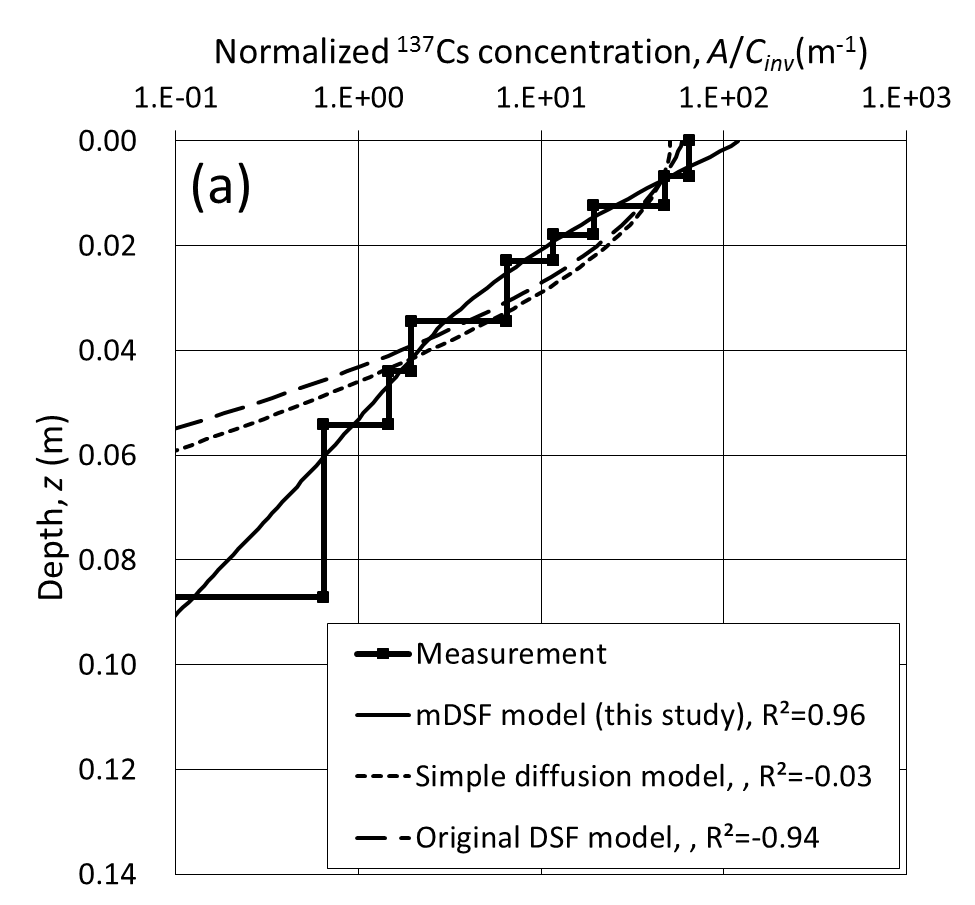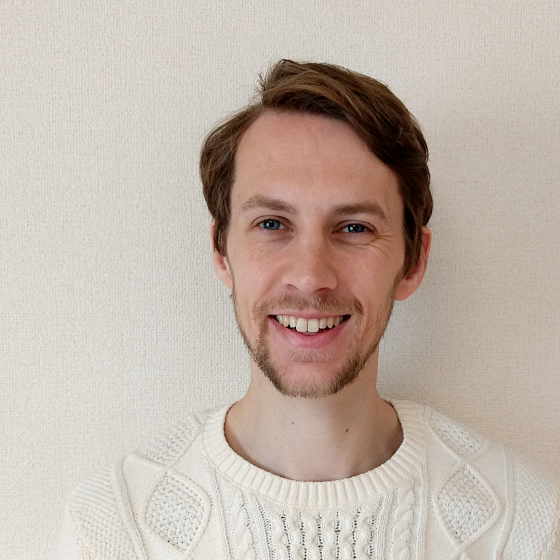Coupling the advection-dispersion equation with fully kinetic reversible/irreversible sorption terms to model radiocesium soil profiles in Fukushima Prefecture
Published:

Abstract
Radiocesium is an important environmental contaminant in fallout from nuclear reactor accidents and atomic weapons testing. A modified Diffusion-Sorption-Fixation (mDSF) model, based on the advection-dispersion equation, is proposed to describe the vertical migration of radiocesium in soils following fallout. The model introduces kinetics for the reversible binding of radiocesium. We test the model by comparing its results to depth profiles measured in Fukushima Prefecture, Japan, since 2011. The results from the mDSF model are a better fit to the measurement data (as quantified by R2) than results from a simple diffusion model and the original DSF model. The introduction of reversible sorption kinetics means that the exponential-shape depth distribution can be reproduced immediately following fallout. The initial relaxation mass depth of the distribution is determined by the diffusion length, which depends on the distribution coefficient, sorption rate and dispersion coefficient. The mDSF model captures the long tails of the radiocesium distribution at large depths, which are caused by different rates for kinetic sorption and desorption. The mDSF model indicates that depth distributions displaying a peak in activity below the surface are possible for soils with high organic matter content at the surface. The mDSF equations thus offers a physical basis for various types of radiocesium depth profiles observed in contaminated environments.
H. Kurikami, A. Malins, M. Takeishi, K. Saito & K. Iijima
Journal of Environmental Radioactivity 171, 99-109 (2017)
DOI: 10.1016/j.jenvrad.2017.01.026
PDF: download
